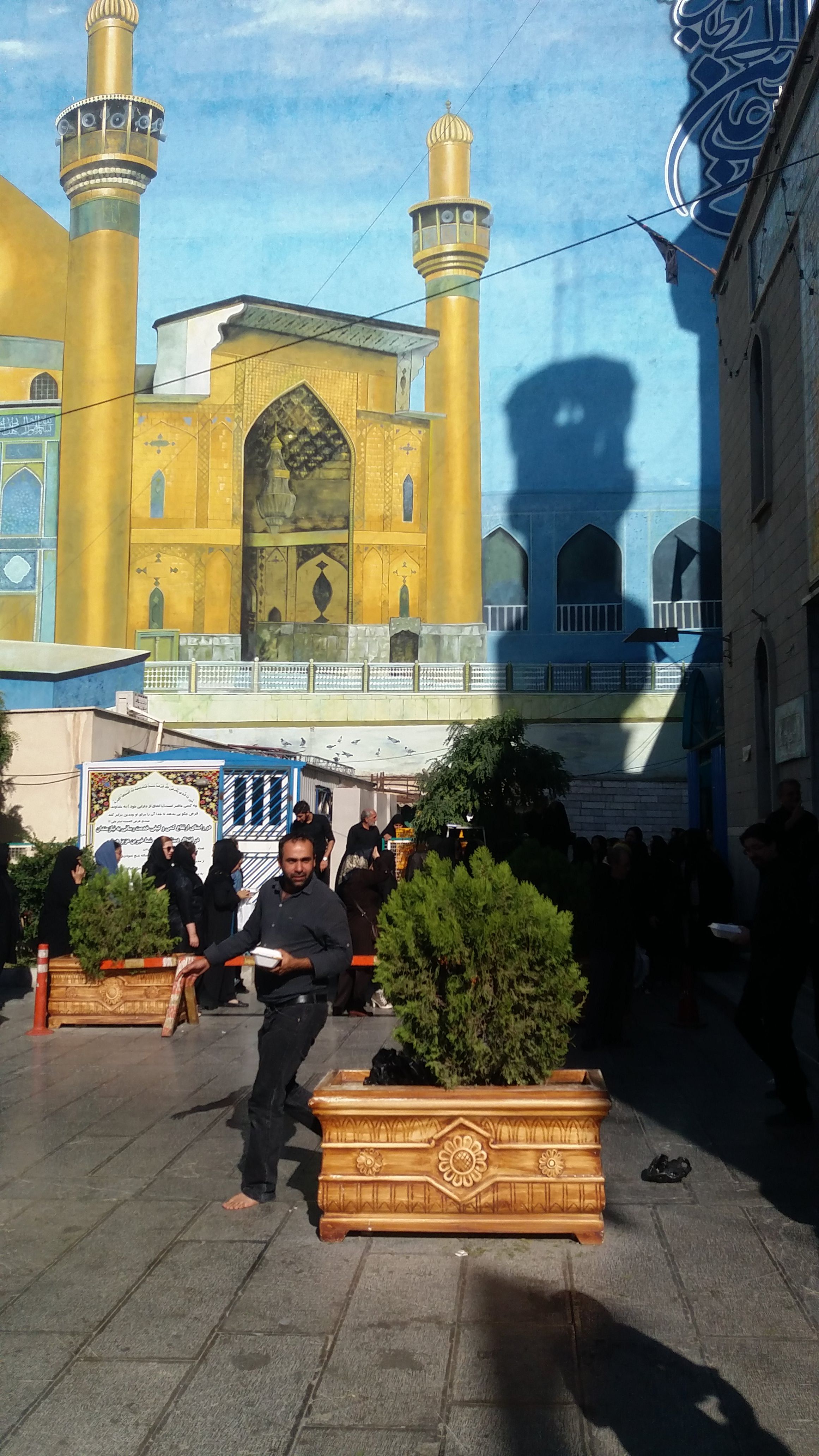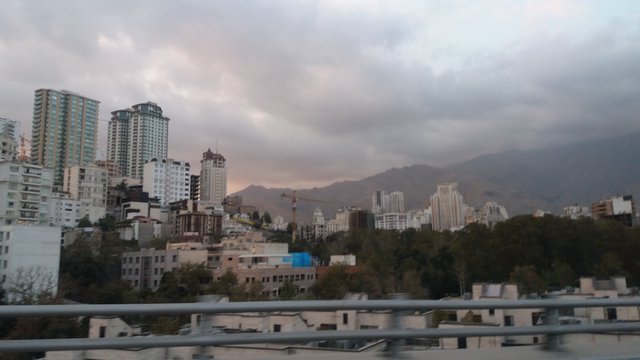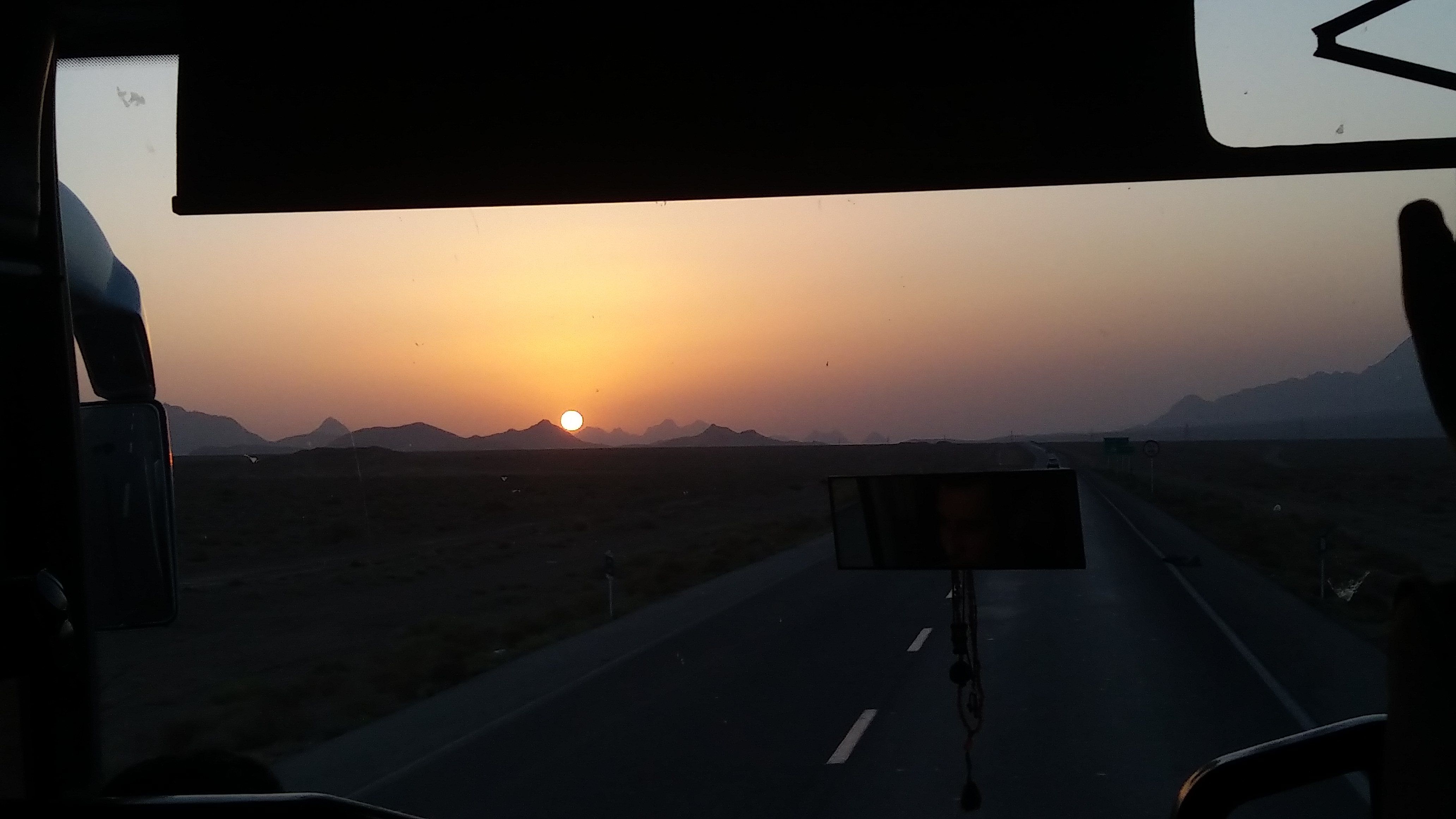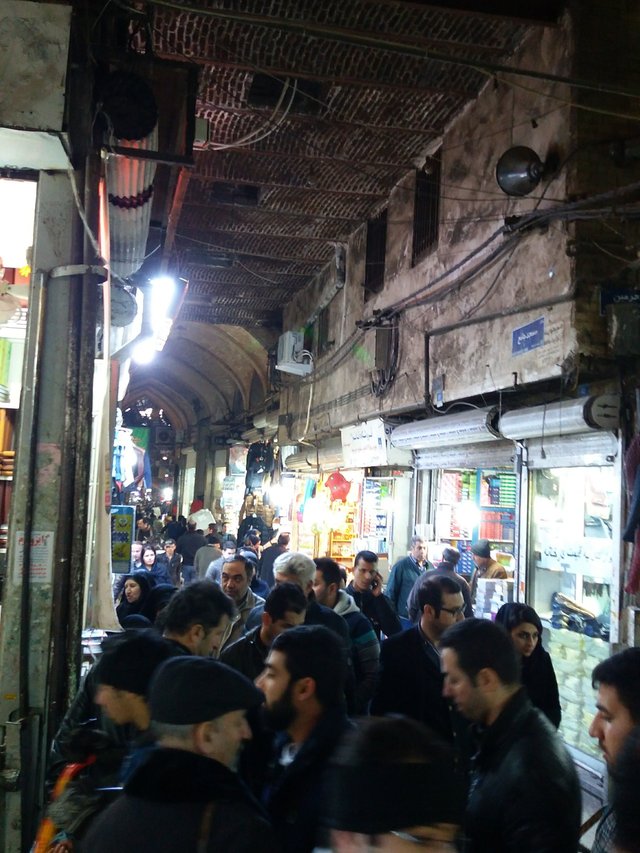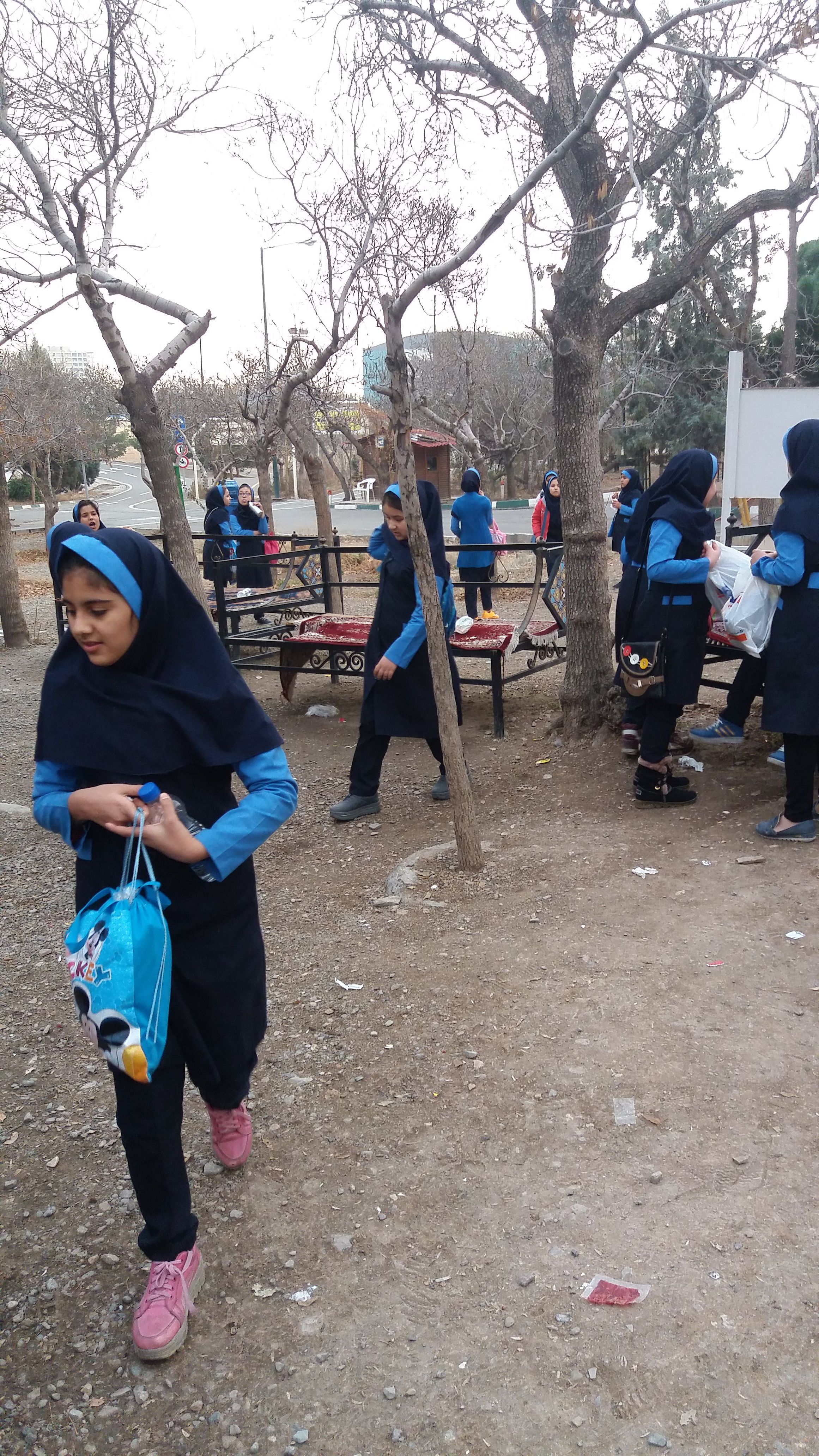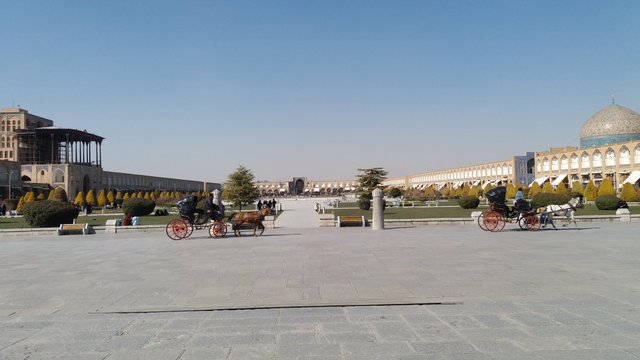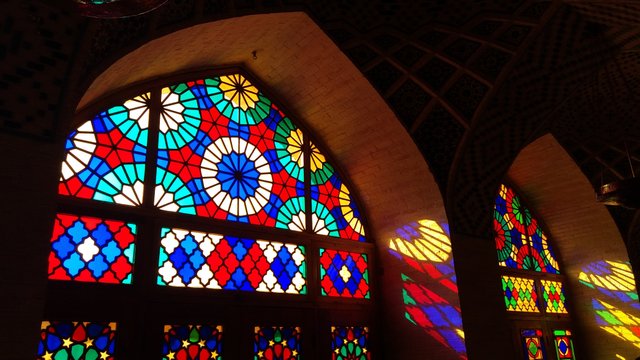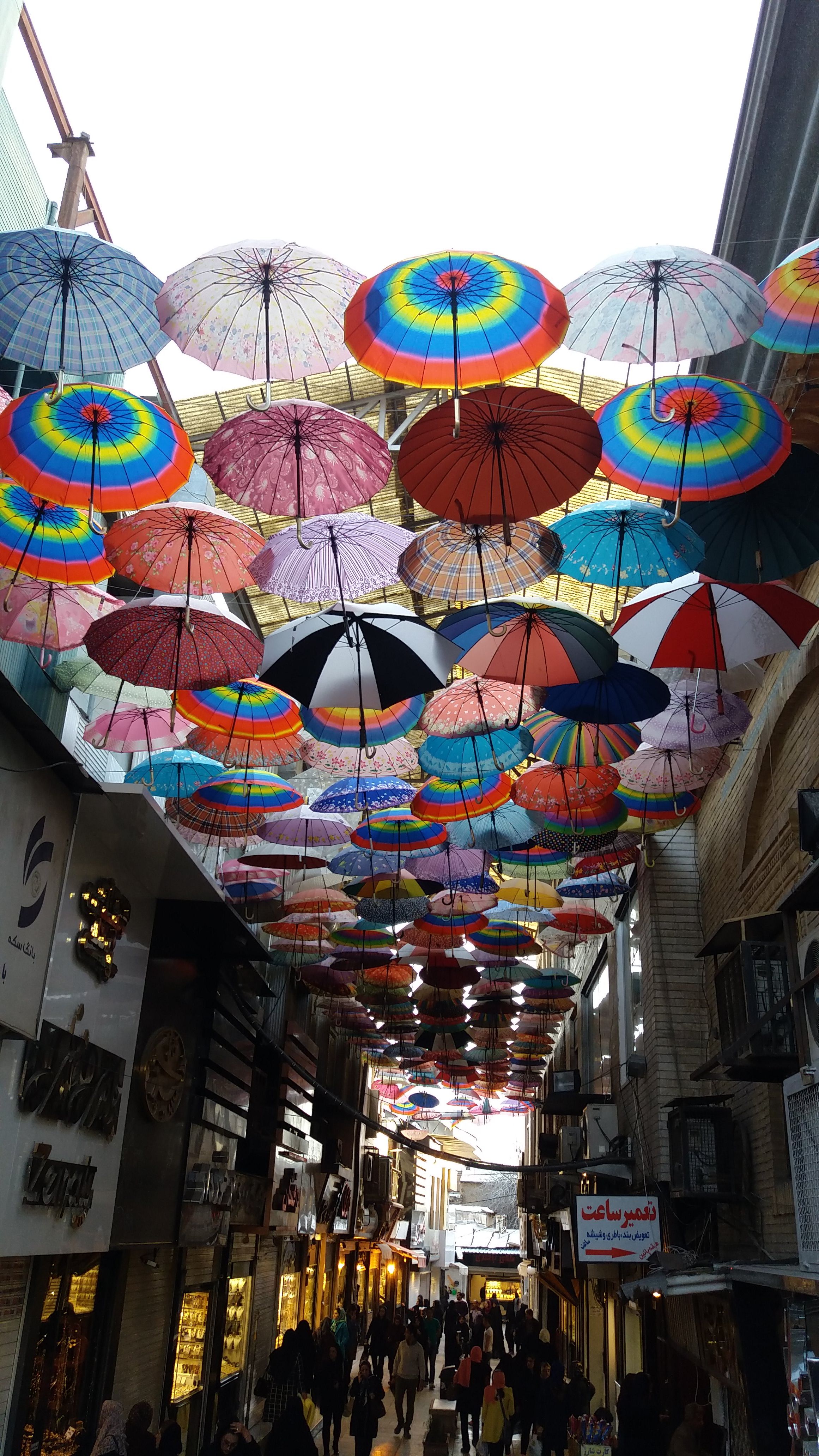Iran: A Different Story to the Common Misconception
When I first thought about visiting Iran I wasn’t sure what would await me. To be honest I didn’t know very much about this country located somewhere in the far east. The first ideas that came into my mind weren’t particularly pleasant. I had gotten used to the negative barrage of information coming from various news outlets about this country. Broadcasts about Iran’s nuclear ambitions or about the hate towards American or Jewish people regularly made the evening news here. There weren’t all too many good things I could name about Iran — in fact, maybe there were none. Of course this didn’t mean that there weren’t any, but it rather highlighted my ignorance toward the country and its people. Besides from watching a couple of documentaries (there are some good ones out there if you look) I hadn’t gotten much deeper involved with this subject.
Then, one day I decided to visit Iran. I thought it would be a good idea to broaden my horizon and meet a culture which was so different to my own. Although I had been to many different countries, I hadn’t really visited any country considered to be “non-western”. When I told my friends they expressed words of caution: “Are you sure it’s a safe country to visit?”, “Aren’t there always bombs going off there?”, “Isn’t it really easy to get thrown into prison?”. My mom of course had to swallow at least twice before she reassured me that it would be a good chance for me to get to know a new culture (although I could definitely notice from her voice that she wasn’t at all convinced of this herself and would have rather wanted me to visit Denmark or the Netherlands — countries, where the most dangerous thing that could happen to you was perhaps getting fined for parking in the wrong spot). But I was convinced that these reactions resulted from the same lack of knowledge that I had had to this point. So I wanted to find out what was actually going on. I wanted to see this rogue and supposedly dangerous country on my own.
As soon as I had gotten my visa from the airport I was good to go (prior to this there was a somewhat miniscule chance that I would have to return to Germany for not being able to acquire a visa on arrival (VOA)). When I took a taxi to the nearest subway station I met a German couple. They were also planning on staying for a couple of weeks in Iran and it was interesting to hear what they had planned. While I was planning on staying in Tehran for at least a week, they wanted to explorer the country and visit many of the cities normally highlighted in a tourist guidebook. In hindsight, it is quite strange that those were the only Germans I had met on my journey (as Germans are normally known to be travelling around everywhere). In fact, I can actually count on both hands the number of tourists I had seen throughout my whole stay in Iran. That, I find truly remarkable. Perhaps it was because of the time of year or because of the non-touristy places I had visited, but it was the first time that I hadn’t encountered hordes of tourists from all different kinds of countries on my journey. As I found out, the tours which are offered throughout the country (like visiting the desert or exploring the jungles or other natural wonders) are mainly taken by Iranians themselves. The reason, I suppose, is because it is hard for Iranians to travel to other countries. May it be for a lack of financial resources or the travelling restrictions laid down by other foreign countries. But fortunately it turns out that Iran has a lot of diversity to offer: There are jungles in the north, skiing areas on some of the highest mountains on the planet, access to the Caspian sea — the biggest freshwater lake in the world, an extensive shoreline with the Persian gulf, and of course, there are many different kinds of deserts made of rock, sand, and salt. So contrary to the image we “westerners” receive from our media, Iran is more than just a sandy desert.
Tehran, one of the largest cities in the world, turns out to be actually more advanced than most people would like to believe. There is actually electricity there. It’s literally amazing. At night, when the sun sets below the horizon, the buildings light up with all sorts of different signs and slogans. A foreigner should not be too harshly judged when thinking that he is on some alien planet. All the signs are in Farsi, the common language spoken in Iran (as with other languages there are also many different dialects spoken throughout the country making it sometimes hard even for Iranians themselves to understand them). There is a certain sense of beauty in the script that I have not found in the Latin writing system. To me even the receipt of a grocery store could be framed and placed in an art gallery. There is a real sense of beauty emanating from the letters which have condemned me to learn the script, to read and to write it. Although it is hard, I find it truly rewarding. The spoken language itself is hard for me to describe. At first the only words I could understand were the many French loan words that have been adopted by this language. “Merci” is usually the first word that a foreigner picks up. Of course one of the biggest misconceptions in this regard is that Iranians speak Arabic. Iranians kind of laugh at the notion because for them the languages are so different. And don’t look so surprised if they roll their eyes at you when you tell them that you just signed up for an Arabic language course and are wondering why you can’t communicate with them. Although I have heard that there about 20–30% of Arabic loan words in the Persian language the linguistics of the language are quite different and many Iranians will tell you that they in fact hate Arabic. So please don’t mix up the two — it’s essential for your survival there.
There are a couple of things which might come as a surprise in Iran. There is, for example, the mobile phone infrastructure which is very well developed. I think it is even better than in Germany. In larger and smaller cities I always had a 4G connection and sometimes even in urban areas. I would definitely recommend any traveler getting a sim card as it makes everything a whole lot easier. Wi-Fi access isn’t as good, but some shops or restaurants offer it. Also, contrary to what I had thought, Germany isn’t the only country where faucet water is drinkable. In Iran you are good to go. It doesn’t even have that chlorine taste to it which other countries often have. Sometimes it just tastes a bit salty (especially in more rural areas). [t1] Considering that I had always lived by the rule of thumb “don’t drink faucet water in any other country except for in Germany” I was genuinely happy to extend that rule so it would include Iran from now on. Maybe this is just a big deal for me and other people wouldn’t even make a big fuss about it, but I think it is always much more convenient to travel in a country where you don’t have to think about the opening hours in order to have a drink.
Not all of the things I had encountered were of course so rosy. There is the traffic which is unbearable at rush hour. Have you ever tried to cross the street when there are about 20 cars coming your way without there being any apparent intention of stopping for you? It’s kind of scary. However, after a couple of times it begins to feel natural. In some magical way the cars actually manage to avoid hitting you. Although there usually isn’t really enough time to look at the driver (and seeing their mood which could very well decide your fate) it is possible with a little bit of practice to navigate in the sea of cars and motorcycles without getting seriously hurt. But I still hope that this issue will get some serious attention soon as Iran has the highest number of traffic accidents in the world.[1] I am not too hopeful that the situation will improve quickly, though. There is just too much red tape involved in the decision making process of governmental agencies and quite frankly I think it would take half a generation to make people drop their current habit of driving. You can’t just start driving like a sane person from one day to another (if you think that you are a good driver just ignore what I am saying here). That takes some regulation, personal insight and a willingness to drop the sense of pleasure derived from extensive quarreling with other road users. And it’s especially the last point which might prove to be the most difficult thing for some Iranians to do. I remember sitting in a Taxi on one of my first days when we were in a traffic jam and another Taxi in front of us came suddenly to a halt. The result was that we crashed into the back of the car as we were keeping only about a hand’s length of a distance (which was apparently already pretty generous). Both drivers got out of their car and started screaming at each other and gesticulated frantically with their hands. But contrary to my expectation that their disagreement would end up in a fist fight, they suddenly just got back into their car again. It would seem that this had been just a friendly chit-chat, a routine civil conversation and it wouldn’t be worth involving the insurance companies with some minor bumps and scratches (which lends the cars their ultimate character and charm anyway).
With so much traffic it shouldn’t come as a big surprise that there is also a lot of pollution. The air is at times so polluted from all of the vehicles that it makes it almost unbreathable. Especially near the streets it is very nauseating and it’s impossible to get a breath of fresh air. I can understand why most taxi drivers I encountered weren’t in a particular good mood. The exhaust from all of the cars cannot possibly have a good effect on someone. In general I didn’t encounter too many other forms of pollution, although I wasn’t too excited about some people’s attitudes about leaving their stuff out in nature. This reminded me of Italy where this kind of problem is even more prevalent. Parks and other natural sites sometimes look like landfills. Fortunately it wasn’t so bad in Iran, but there were still plenty of places which made it difficult to get a picture of some beautiful landscape without plastic bags or bottles entering the frame.
The strict rules laid down by sharia law are of course quite different to the ones encountered in Europe. Although, as a tourist it seems that you get a sort of special status in which breaking some of these rules doesn’t get you in too much trouble. But it still meant that almost all of the fun things that I had taken for granted in Germany were forbidden. You want to spontaneously test those dance moves from the last youtube video you saw (oh yeah, by the way, youtube isn’t a thing in Iran — it’s censored)? No, it’s not possible. Dancing is not allowed. I don’t really know what happens if you do it anyway, but the police will probably take you in for questioning. You want to walk around with short pants or maybe no shirt because it is really hot? I certainly wouldn’t recommend doing it as a man; a woman of course could get thrown into prison for such a thing. Kissing in public is also a big no no. Although holding hands with your girl or boyfriend has become more acceptable over the last years. For some Iranians these laws aren’t necessarily seen as problematic if they live a fairly traditional and religious life. But there is a growing number of people — predominately the younger generation — which find these rules rather outdated and would like to see some changes. Maybe it was because I socialized mostly with people in my age group, but a majority of the people I encountered wanted to see societal change. It was change related to all spheres of society — may it be religious, political, financial or educational. But they weren’t quite sure how such a change could be realized (or ever come about). Most of them shared a sense of not being satisfied with their current living situation. I think much of this stemmed from insufficient financial independence. People had told me that it was just about impossible to find a decent well-paying job. Teachers had to sometimes work as taxi drivers to earn enough money to pay for the rent and other expenses, which of course meant that they didn’t have enough time preparing for their classes. Even if you had some type of college degree, I was told that most people worked in different fields than in what they had graduated in. This precarious financial situation most Iranians find themselves to be in means that many of them still live at home. I have found this to be quite strange yet understandable given the just outlined circumstances. It is strange for me because most young people in Germany want to leave their parent’s home as soon as possible. If I had to guess, I would say that most people are in their early 20s when they leave home. Most of them move into either a shared apartment with other people their age or into an apartment by themselves. With this normally comes a first sense of independence and a realization into what it means to live away from the family (having to do chores, buying groceries, washing your clothes etc.) which comes much later for most Iranians.
I think Iranians find the idea to be separated from the family so soon to be quite distressing. Relatives normally live quite close to each other and when the children move into another village or city it is frowned upon by most parents (albeit it is seen as necessary when they can receive a better education there). Especially women live fairly long with their parents or siblings at home. The reason for this is that they aren’t allowed to live by themselves or with other strangers (note: I was told that women can indeed live alone if they have enough money, but it is difficult.[t2] Only if they become married can they move out and live with their husband. The result is that it is not uncommon for women to be in their late 20s or early 30s and still live at home. Although I find especially this last custom to be somewhat questionable, I have come to appreciate the emphasis Iranians place on family values relating to trust, support, and care. It is something that has steadily decreased in western countries and has left us with a society where individualism and self-dependence are highly valued. Perhaps rather a blend between both of these sides could bring about more coherence in society and also foster a happier and more contented life. In Sweden, for example, I have heard that almost half of the adult population feels lonely at some point in time. Especially in bigger cities where people often live alone and are single this problem is wide spread. There was even a case where an old man lay dead in his apartment for two years unnoticed… something I couldn’t imagine happening in Iran. [2] Perhaps in an unconscious effort to combat this, Iranians often participate in what they call “seleye rahem”. It is a way to keep in touch with all of their relatives by agreeing to meet one another regularly. Although I can imagine that practicing this form of family care could potentially also have adverse effects (imagine getting a visit from your aunt every other day), I think the overall benefits are very good for the family as a whole. In Germany I usually see my closest relatives just two or three times a year. We usually have a big family festival in summer where all of us gather at my grandparent’s home. The other time is at Christmas where I go back to my family’s home. Although the rate of these family reunions is fairly low, I think it is comparable with other families here in Germany. The main reason probably being the long distances separating family members, making it more difficult for spontaneous short visits. As unbearable as this might sound to some Iranians it is something which people in the west have grown accustomed to over the last few decades.
Society since then has changed quite considerably here in the “West”. Not all too long ago there were restrictions in place which in hindsight seem quite strange. Especially because we take them for granted in today’s world. Women in Germany, for example, could not get a driver’s license without their husband’s consent until 1958. And it took almost another 20 years until they could work without a permission from their spouse.[3] These laws seem quite absurd for people here nowadays. However, when visiting Iran it almost seems like travelling back to a time when such rules were still in place back in Germany (and in Europe as a whole). I guess what I want to say is that the social situation in Iran today is somewhat comparable to the one we had in the West half a century ago. Perhaps because religion played a bigger role back then, similarly to what it does today in Iran (at least officially). In the same way that I look at some of the rules we had in place many decades ago in Germany, I think many young people in Iran also look at some of their rules as being outdated and unfair. I felt that this generation expressed the desire for societal change in many areas, one of them being the strict dress code which especially women have to follow. In their view the hijab should be more of an optional choice rather than being something mandatory. Moreover, they weren’t satisfied with rules regarding to gender segregation (e.g., in universities men and women walk through different entrances). They also hoped to have access to uncensored information (internet, TV broadcasts) and wanted a right to freedom of speech and self-expression. Of course these are just some of the examples people felt very strongly about.
Another thing that has to be laid open is the dire situation of fast food in Iran. It is actually terrible. Like in completely gut wrenching awful. Normally I associate fast food with food that tastes good, but is unhealthy for me. In Iran fast food is unhealthy and tastes bad. I think the perfect example highlighting my point is what Iranians call a “pizza”. Believe me, it’s not a pizza. It might be considered as bread with vegetables and cheese, but it is not a pizza in the Italian sense. Probably what shocked me the most was with what ease and naturalness people there put ketchup and salad dressing (yes!) on a “pizza” and thought that this is how a “pizza” was supposed to be eaten. There aren’t any after thoughts like “Is this actually a good idea”, or “can it be considered sane to do this?” — no, people think that this is how it’s done. Of course I guaranteed every Iranian I met that I would be delighted to invite them over for dinner and make them a real pizza (at least as best I can make it, I am no Italian). The rest of the fast food assortment there is just slightly better but equally awful. The thing I really don’t get is why people would actually abuse themselves with this kind of food if they have this wonderful and amazingly tasty traditional Iranian cuisine. It is amazing and is some of the best food there is on our lovely planet. They have all kinds of different stews and kebabs which are usually served with rice (usually the first layer is colored yellow by adding a little bit of saffron). I especially loved the slices of potato [t3] which were fried in some oil and added on top of the rice (Iranians call this tah dig). Then, there are usually some greens which are served with every meal. The diverse arrangement of herbs add a distinct freshness to the meal and makes one feel healthier only by looking at them. I also learned that many Iranian dishes are somewhat more sour compared to European dishes. This is because they add some vinegar to many of the sauces or stews and even pour some of it directly into the food at the table (I had seen this done with “Ash”, a special kind of soup). So while this might seem somewhat unusual, the taste buds quite quickly adapt to this way of cooking. If there are any Iranians reading this in Germany or are considering moving abroad, I would sincerely suggest that they think about opening a Persian restaurant. I can’t speak for all of the European countries, but from what I have seen and heard there are almost no Persian restaurants to be found here. I can guarantee that it would be a success, considering that you have the necessary set of skills to make the dishes of course.
When it comes to drinking, I found out that many Iranians actually like to drink alcohol. I guess I shouldn’t have been so surprised as illegal things generally always become more attractive for people, but the scale on which this was happening had still surprised me. As I learned, almost everyone keeps a stash of safely guarded wine (or “mey” as it is called) in their basement provided that they have one. It seems to be a sort of hobby most people have and I think there is even somewhat of a contest who can horde the most amount of wine in their basement without getting caught with it (I have heard numbers as high as 200kg of grapes which were used for the process!). Obviously this can only be pursued by the middle or upper class society, but I still had the impression that this was fairly wide spread. In fact, it is so prevalent that the government recently had to admit that there is a drinking problem and therefore opened a first rehabilitation center in Tehran.[4] I guess this could be considered as a first step in acknowledging the problem, but there are probably many more people which need some serious attention yet do not receive help as drinking — at least publicly — is still a taboo subject. But contrary to what I had thought, apparently it’s not that big of a deal if you get caught drinking or possessing alcohol (at least in smaller quantities; getting caught with a stash of wine barrels is probably another matter). There was, for example, this guy with us on a desert tour who got caught not once but actually twice by the police. The only bad thing I saw coming out of this was that he was detained for two days after our trip had finished — granted, it is not the nicest thing, but I had believed that there would be much more serious consequences. Unfortunately, this also meant that the whole group had to wait in the desert for three hours while the police searched and researched the bus and questioned some of us. In consequence our whole schedule was upset and we didn’t get a chance to ride the camels or to see the intriguing salt formations in the maranjab desert. Needless to say that this didn’t really raise our group spirit, but it was nevertheless interesting for me to witness these ongoings of everyday life. I don’t even think that our group had been particularly unlucky, but that the hold up by the police was probably something of a routine incident. There were quite a few other people on the tour who had also brought some alcohol with them, indicating that other groups were probably doing this as well and would have gotten into trouble.
Did you know that shaking your head horizontally doesn’t necessarily mean “no” in Iran? I didn’t know until someone had told me. I had thought that this head shake was a rather universal way of saying no. But it turns out that moving your head up vertically and then pulling it down again is how people say no over there. Raising your eyebrows has the same meaning, but I haven’t seen it done too often. Similarly, moving your head vertically downwards and back again is considered to be a “yes”. I got really confused about this at first because it didn’t seem very intuitive to me. To the delight of some I genuinely had to think for a second or two before answering some simple yes or no questions with the right head nod. After a while I got it figured out, and holding your head up really does feel more like a no. I suppose it reminded me of the arrogant gesture when someone is holding up their nose high in the air. Something I was surprised about not seen done more often was the “ruboosi”, the French equivalent of kissing one’s cheek (normally more than once). I can only remember two or three situations when I was thinking to myself “ok, I’m in one of those ruboosi situations; act cool, just go in and do what the other person is doing”. Of course it was pretty harmless and actually is a nice way of greeting someone. I wish we would do it more often here in Germany as well as it is much more of a warmer greeting than just raising your hand and saying a bland “hi”. It actually feels somewhat strange now to just say something verbally without getting physically into contact with someone. One of my favorite gestures I encountered was placing your hand over your heart as a sign of great respect and warm-heartedness when saying goodbye to someone. It just instantly makes for a great feeling and creates a bond which is hard to achieve in a different kind of way. We could use some of this warmth here in the north where the perpetual rain and snow makes us seem quite cold in comparison I guess.
I think most people in Europe believe that the people of Iran are very religious. It is after all an Islamic Republic, right? As I found out, this holds true only in large part for the people who had helped bring about the Islamic Republic in the first place (it is worth pointing out that many people emigrated during the revolution who weren’t satisfied with how things were going). Many of the children who were brought up after the revolution seem to have a different understanding of the world. In other words, I had the impression that the younger generation, especially the ones in their 20s and early 30s, weren’t as religious as their parents. Considering that this had been a religious revolution, a development like this seems rather quite strange. It would be more intuitive to think that the younger generation would become even more religious or at least stay as religious as their parents. Obviously I had just received a snap shot of the current situation there and it was colored with my own impressions. But other studies I had read during my studies in sociology confirmed this picture. Iranians in their 20s and 30s were less religious than people from other Islamic countries. Compared with its surrounding Islamic neighbors Iran seems to have somewhat of a unique status in this regard and it remains intriguing to me how this will develop in the near future. A person I had met argued that this decrease in religiosity was actually a sign that the Islamic revolution had in essence failed in bringing about a new structure in society. He explained that the younger people had not become very religious even in spite of the government’s attempts to emphasize the importance of religion in school and the media. The dissatisfaction of the younger generation with the current political situation and the adaptation of a more secular worldview was proof for him that the current system was in dire need of change as it did not represent the people’s views anymore. In fact, as I have heard from others, many values already seem to be changing quite quickly in Iran. During my stay there was, for example, a religious festival which was called “muharram”. Although everybody seemed to be involved with it in some way (at the height of the festival it was common to get some tea from one of the many stands on the streets or some “nazri” which was some food and was served for everyone), the Iranians in my age weren’t particularly moved by the event. They told me that it had been common for people to mourn the death of Imam Hossein some 20 years ago, but nowadays younger people used this kind of event also for socializing (it was even hinted to me that these gatherings were used to get into touch with the opposite sex, exchanging numbers and making arrangements for dates). Other things that have changed over the last decades includes being able for couples to hold their hands in public without getting into trouble. Nowadays people don’t have to show a marriage license anymore if they are seen together. Although the moral police still enforces the dress code, it has also become easier for women to wear their hijab more loosely or dress somewhat less concealed. It is small changes like these which are hard to see from the outside, but give some young Iranians hope that things are changing. Of course not everyone feels the need for such a change and it remains to be seen if this liberalizing trend keeps unfolding or if the government will to decide to enforce stricter laws again. But in my opinion Iranians are moving towards embracing greater autonomy.
I have heard from almost everyone I had asked about the current political situation that corruption is a big part (or perhaps the biggest part) of the problem facing Iran today. Supposedly almost everything is possible if you happen to have the right amount of money. Some officials will look the other way for breaking a rule or will treat your affair favorably when they are offered a sufficient bribe. In fact, I was told that when you get into trouble there are basically two directions in which things could be going. The first one is usually only available to the few who have money: it’s possible to just pay off your crime and in doing so avoid the entailing punishments. Of course it helps if you also happen to know some people in influential places. However, the far more common circumstance is for people to just face their charges. This can mean anything from getting thrown into prison, receiving some lashes or if things are really not looking good there is actually a chance of getting executed (stoning people is not unheard of). However, corruption isn’t just inherent in the penal system, unfortunately like with all other countries, its nature is more systemic. In that sense, I think that it’s not even necessarily surprising that there is corruption, per se, in Iran as it happens everywhere around the world. What everyone seems to be more frustrated with is the scope at which it is happening and the apparentness throughout the system — even for the people it had become an accepted part of everyday life. Everyone knew, for example, that it was a common practice for politicians or government officials to receive money from suspicious donors. People were aware that authorities in the real estate sector made it more difficult for people to sell their properties at a fair price (and in return keeping some of the money from the transaction). And I was told that there was generally a strong suspicion of the authorities in charge of constructing the Tehran subway network that they had slowed down construction so that other groups could profit from it. It seems obvious, for example, that not everyone would welcome a cheap accessible transportation system connecting the airport to the city center. Unfortunately, I think the side effect of this is that young Iranians feel somewhat pessimistic at times. They are faced with a system which in its essence does not work very well and even discourages honesty. Together with the poor situation of the job market this compels many young Iranians to think about moving abroad. Indeed, most Iranians my age were either thinking about moving to the US or Europe or were already in the process of doing so. Most of them told me that they hoped to be able to study in their desired fields or find jobs so that they could live a decent and normal life. I genuinely hope that they will be successful and perhaps even think about returning so that there won’t be a lost
One last point and perhaps the most important one I want to touch upon is the stark contrast between the public image of Iran and Iranians themselves. I guess in a sense it could be argued that there are two sides of Iran. One is the public image which everyone outside of Iran is familiar with. It reflects the attitudes and sentiments of the government, its ideology, rules and norms. People are expected to live by these customs and almost no one breaks any of these rules which permeate the public space so pervasively (I think that even without the presence of the police people would still act like this as it has become a routine way of living). The other side, however, has to be explored by visiting people in their homes or going on a hike in the mountains and talking about their views and beliefs over a hot cup of tea. When I did this I got to appreciate their rich and flourishing culture and was filled with a warm sense of friendship that is so rare to find these days. It is this side which is underreported in western media and it is the reason that makes a visit to Iran so worthwhile. In essence, the real Iran can only be found here with its people.
I have to thank all of the people which have so kindly welcomed me to their country and sometimes even treated me as if I had been part of the family. Their sense of openness and appreciation towards other cultures and their acute interest made this trip so unique. I can still feel the warm-heartedness and the sense of joy it gave them to share their food and accommodation with me. And I felt that it was a message of hope and peace that most people wanted to give me along my journey and that I should share this message with all my friends back at home. I truly hope that more people come visit this remarkable, safe and beautiful country and that they especially get to know the people — the real Iran — for themselves.
[1] http://www.bbc.com/news/world-middle-east-18023809
[2] https://www.thelocal.se/20151229/sweden-is-a-paradise-but-we-have-lost-simple-human-values
[3] http://neuneinhalb.wdr.de/lexikon/G/gleichberechtigung.php5
[4] http://www.independent.co.uk/news/world/middle-east/drunk-in-tehran-the-islamic-state-s-secret-party-scene-9217419.html
